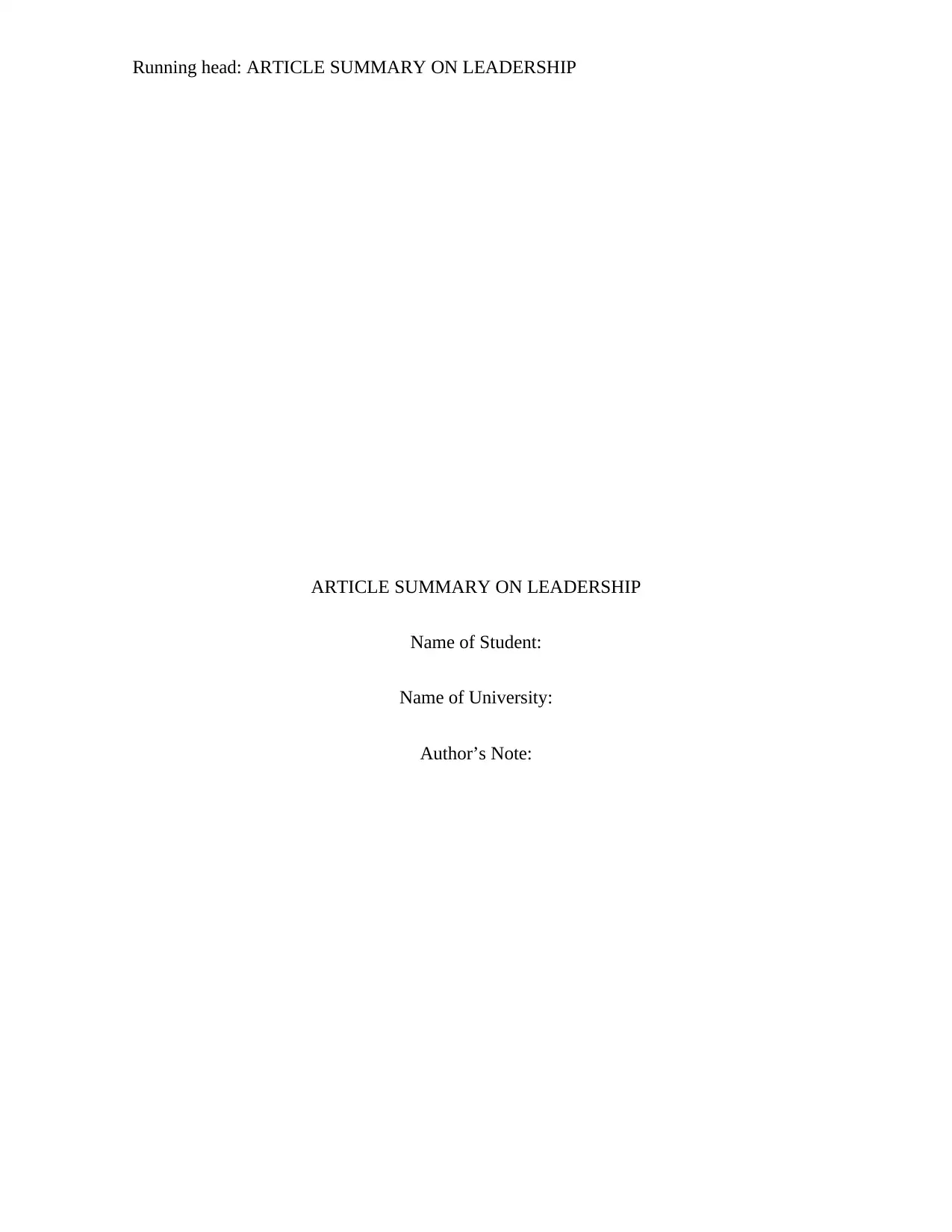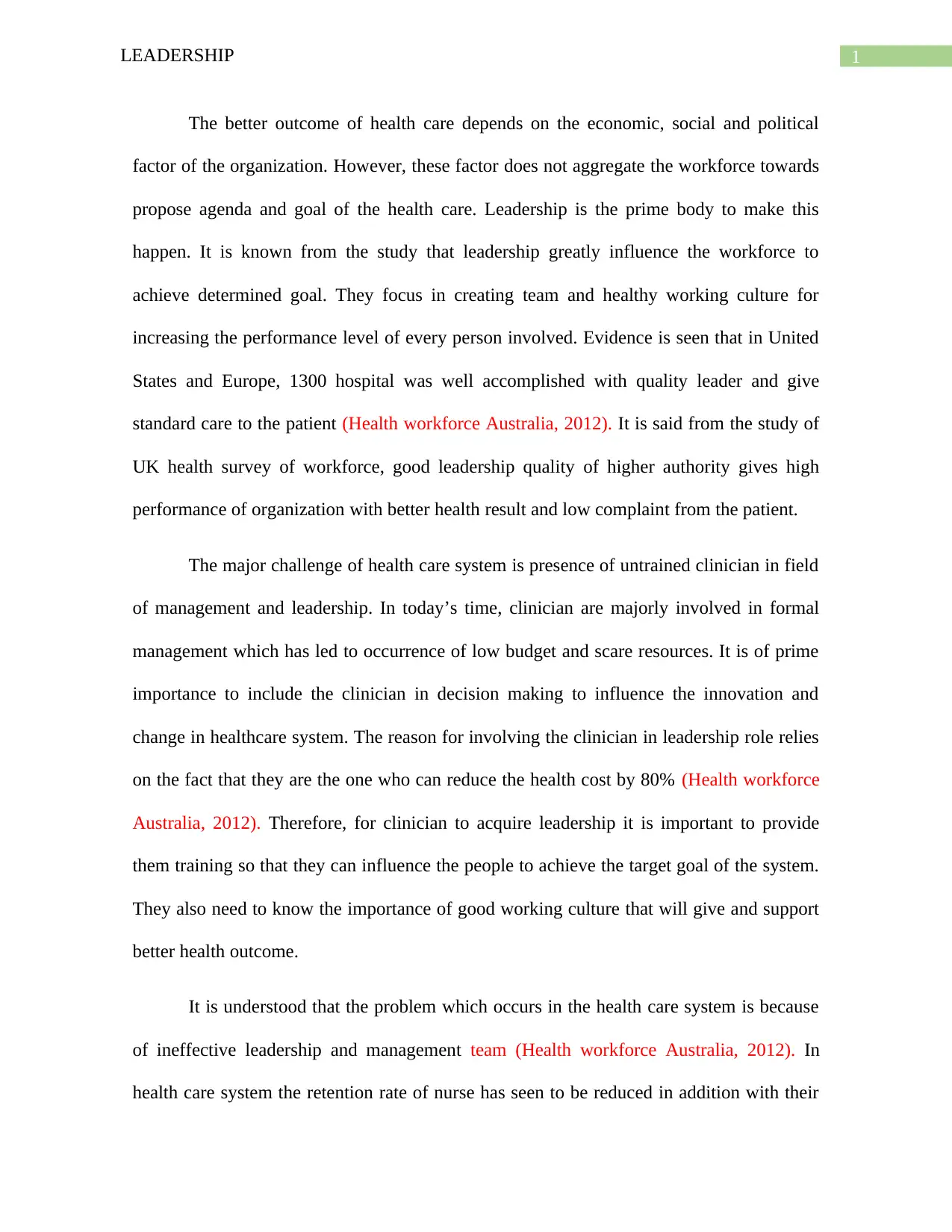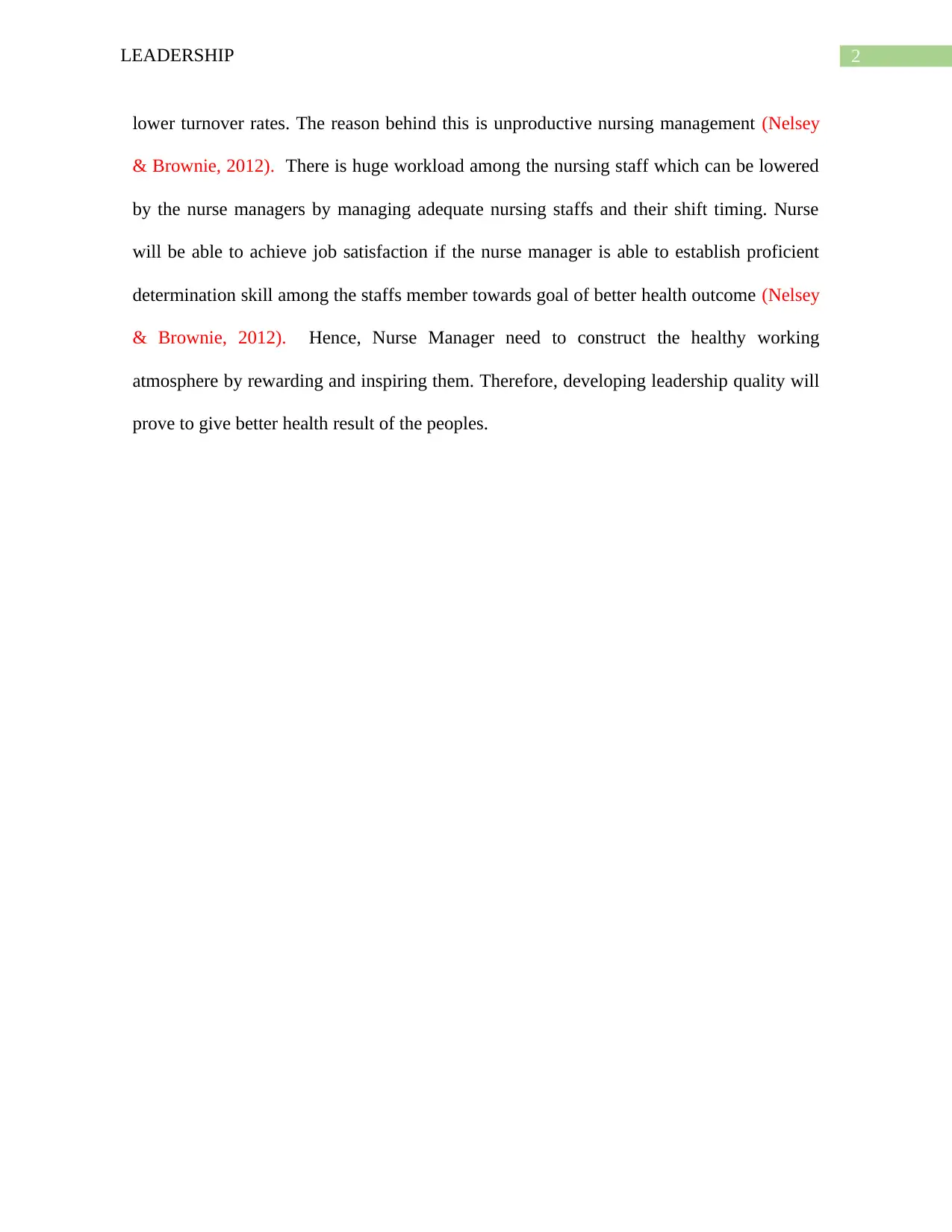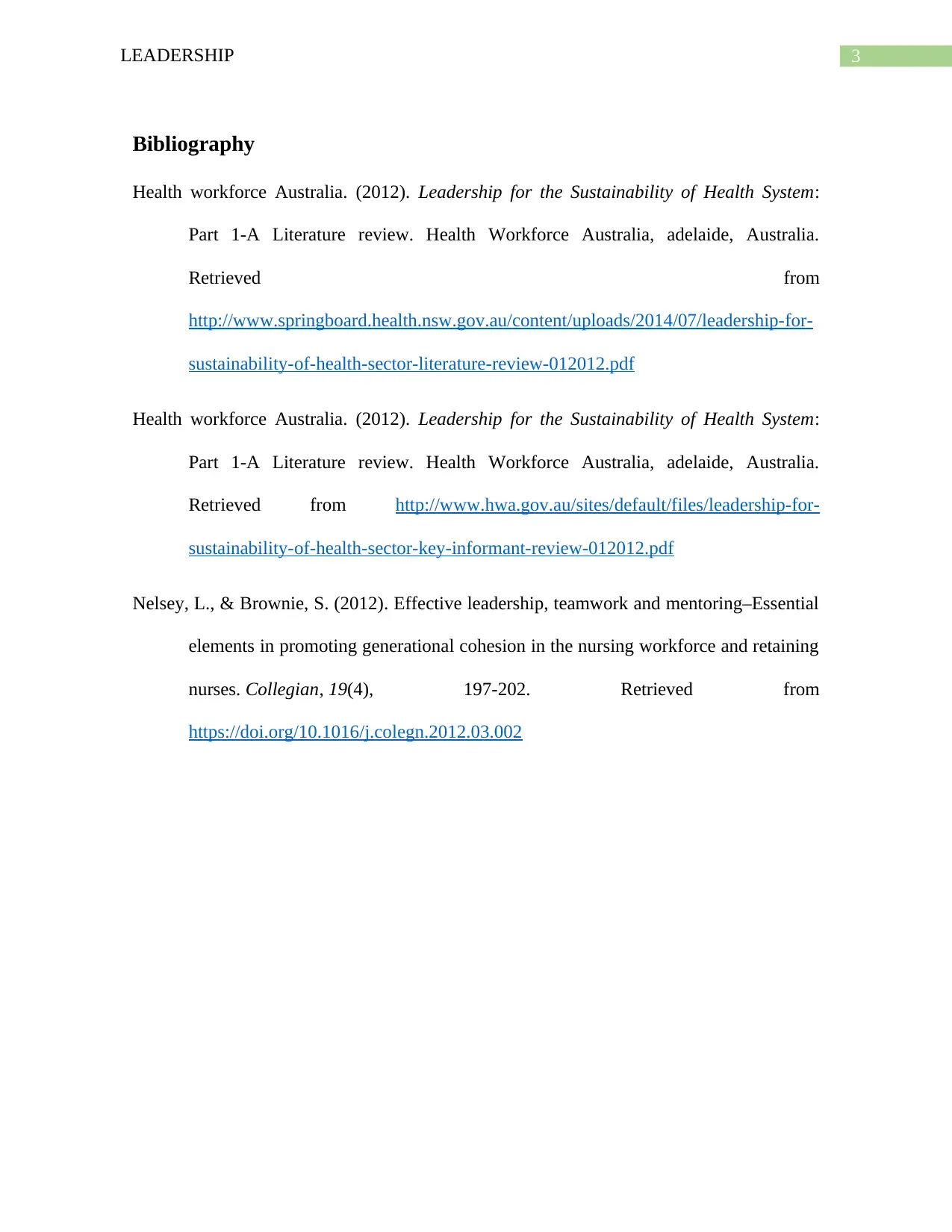Leadership in Healthcare: Article Summary and Analysis Report
VerifiedAdded on 2023/03/20
|4
|610
|95
Report
AI Summary
This report provides a comprehensive summary of an article focusing on leadership within the healthcare sector. The article emphasizes the crucial role of leadership in improving healthcare outcomes, particularly through its influence on the workforce. It highlights that effective leadership fosters a positive work environment, which in turn boosts staff performance and patient care quality. The summary underscores the challenges posed by a lack of trained clinicians in management and leadership roles, advocating for their inclusion in decision-making processes to enhance innovation and cost-effectiveness. The report further examines the impact of leadership on nurse retention, linking unproductive management to increased workloads and decreased job satisfaction among nursing staff. The article stresses the importance of nurse managers in establishing a supportive and rewarding work environment to improve overall healthcare results and proposes that developing leadership skills is essential for better patient outcomes and a more sustainable healthcare system.
1 out of 4









![[object Object]](/_next/static/media/star-bottom.7253800d.svg)